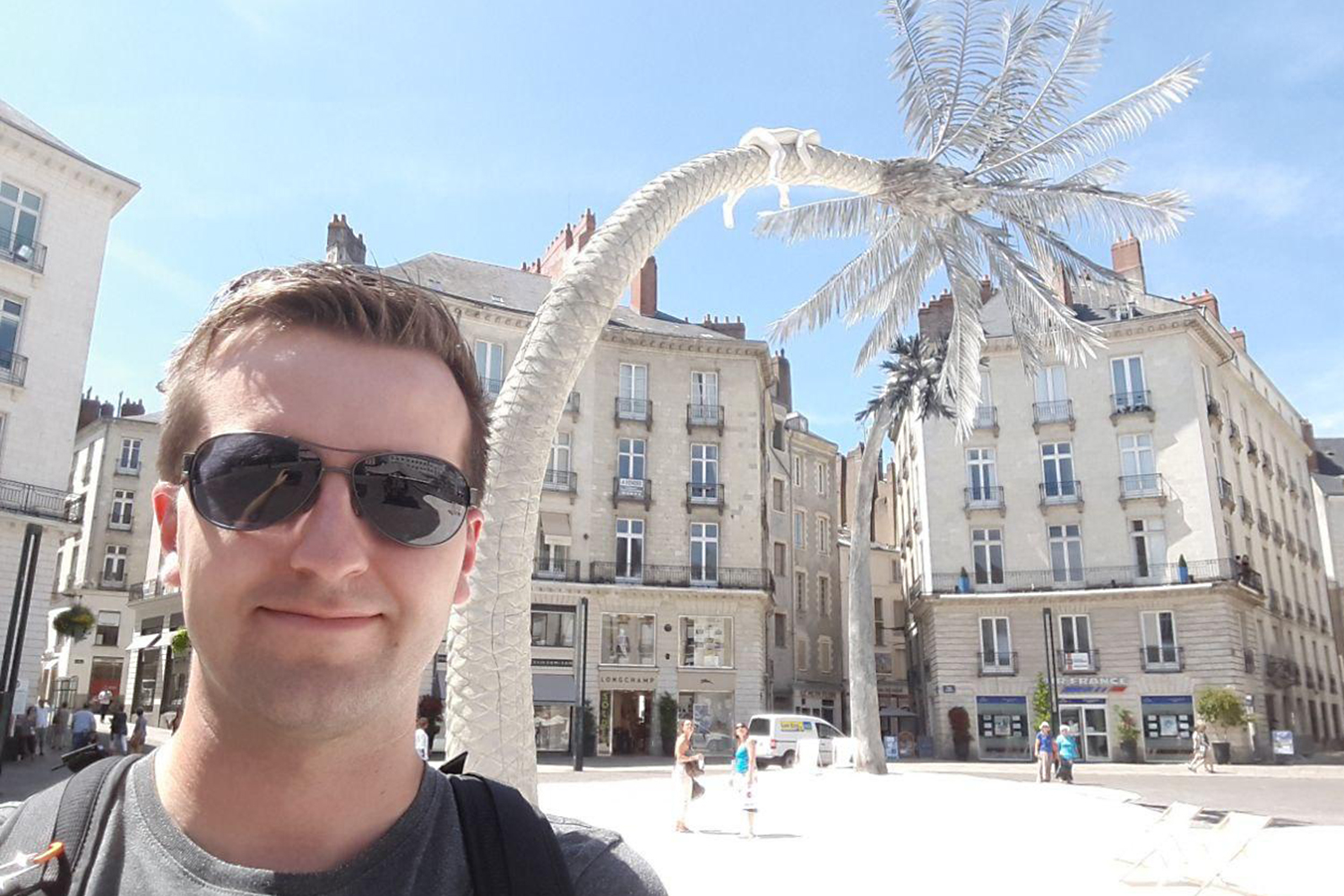Safer Buildings Through Fast Fire Simulation A short portrait of Dr. Stephan Lenz from the Research Training Group 2075
The condition of building materials and thus the properties of a structure change over time. This can affect reliability, quality and safety. Young scientists in the Research Training Group 2075 “Modelling the constitutive evolution of building materials and structures with respect to aging” in the Core Research Area “Future City” at Technische Universität Braunschweig are researching and developing new methods to study these aging processes. Dr. Stephan Lenz completed his doctorate in the Research Training Group from April 2017 to March 2020. “A gas kinetic scheme approach for modeling and simulation of fire on massively parallel hardware” is the title of his dissertation. We introduce the graduate with a short portrait.
Who are you and what have you been researching?

Dr. Stephan Lenz attending a conference in Nantes. Picture credits: Dr. Stephan Lenz/TU Braunschweig
I studied Mechanical Engineering and Computational Sciences in Engineering at the TU Braunschweig. As early as my undergraduate studies I was particularly interested in mathematical modeling and simulation. In the master’s degree, I then focused on the numerical simulation of flow phenomena. In my doctorate I was engaged in the development and investigation of an alternative flow solver for fire simulation.
Specifically, which problem did you investigate?
I have dealt with the following questions: Is it possible to simulate fires on the basis of kinetic methods? Does the better parallelizability result in a gain in computing time with comparable accuracy?
What inspired you in your research?
In my project I developed software based on innovative concepts from scratch. I am enthusiastic about creating something that is able to solve complex problems.
How is this topic relevant for the Future City?
Fire protection is a key factor in designing buildings. Rapid fire simulations can help make buildings safer and more efficient, especially if the limited space in the Future City is to be used efficiently.
What was special about participating in the Research Training Group “Modelling the constitutive evolution of building materials and structures with respect to aging”?
The Research Training Group gave me, as someone from outside the subject, exciting insights into research work in civil engineering. In addition, there is a close and regular exchange with the other doctoral students who are working on other and similar topics, thus providing new perspectives on their own work.
What are your plans after graduating from TU Braunschweig?
After my doctorate, I will continue to solve engineering problems with the help of software as a software developer in a company for optical metrology in Braunschweig.
